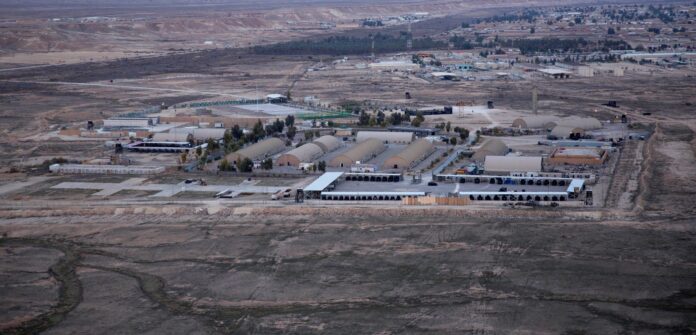The tensions between Iran and the United States grew out of control on Monday, when the former fired a missile attack on Al-Udeid Air Base in Qatar, the biggest American military base in the Middle East.
Iranian state media announced the move as direct retaliation for the U.S. striking three Iranian nuclear sites over the weekend. According to reports, those previous strikes drawn by President Donald Trump have led to serious destruction of Iranian nuclear facilities in Fordow, Natanz, and Isfahan.
The Islamic Revolutionary Guard Corps (IRGC) also announced that the attack on the missiles was a justifiable reaction to what it termed Iran’s sovereignty infringement. The IRGC then declared that American military posts in the region are not sources of strength but sources of weakness and stated clearly that the next time there was an attack on Iran, it would respond with greater force.
Missiles Fired, But No Casualties Reported
As the Iranian military initially stated that they fired six missiles, the U.S. defense officials stated that there were more of them, as it was stated to be somewhere around 14. In the meantime, Qatari leaders reported that the base was attacked by 19 Missiles. Luckily, the air defense mechanisms in Qatar, as well as the interceptor jets in the country deployed by the Americans and the coalition forces in Al-Udeid, forestalled the incoming risks. There have been no casualties or other serious damage to date.
Witnesses in Doha reported how the night sky flashed and made loud bangs as the defense systems were activated. Video recordings made by residents displayed some vivid streaks in the sky of swept missiles. The assault happened following the recurrence of shelter-in-place notifications by both the U.S State Department and the British Foreign Office to its citizens residing in Qatar. There are about 8,000 Americans and thousands of British nationals living there.
Iran May Have Warned Qatar in Advance
In a surprising twist, Iran reportedly informed Qatari officials in advance of the strike, likely in an attempt to avoid civilian or diplomatic casualties. According to The New York Times, three senior Iranian officials confirmed that this early warning was part of Tehran’s strategy to avoid unnecessary escalation while still making a forceful statement.
President Trump acknowledged this communication in a press briefing, thanking Iran “for giving us early notice, which made it possible for no lives to be lost.” He described the strike as “very weak” and said Iran had “gotten it all out of their system.
Regional Reactions and Airspace Closures
The missile strike prompted temporary airspace closures across the Gulf region. Hamad International Airport in Doha, one of the world’s busiest international airports, rerouted dozens of flights in the hour leading up to the attack. Other countries, including Bahrain and Kuwait, briefly suspended air travel over security concerns.
Qatar, however, issued a strongly worded response after the incident. The Qatari foreign ministry called the attack a “flagrant violation of its sovereignty” and noted that it had repeatedly warned of the risks associated with escalating tensions between Israel, the U.S., and Iran.
No End in Sight, Despite Ceasefire Hopes
Although a ceasefire is now in effect between Israel and Iran, the situation remains highly fragile. Iranian officials said they fired a “final round” of missiles toward Israel just minutes before the ceasefire deadline. Iran’s Supreme Leader, Ayatollah Ali Khamenei, declared that Iran had not harmed anyone during the U.S. base strike but reiterated the country’s refusal to tolerate violations of its sovereignty.
On the other side, the Israeli government issued a stern warning that it would respond “forcefully” to any violations of the ceasefire. The U.S. military remains on high alert across all Middle Eastern installations, and officials say the current calm may be temporary.








